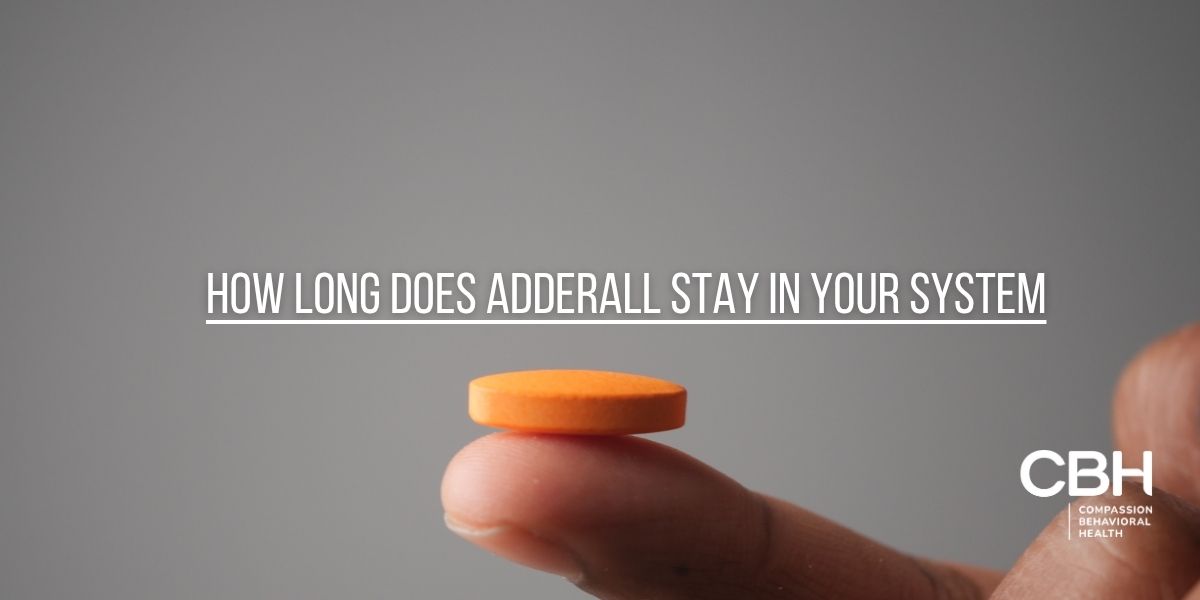EMDR (Eye Movement Desensitization and Reprocessing) is a unique and effective therapy approach that has been gaining recognition as a successful treatment for addiction. By targeting the underlying traumatic experiences that often contribute to substance abuse, EMDR aims to alleviate the psychological distress that fuels addiction. In this comprehensive guide, we will explore the fundamentals of EMDR therapy and how it can be utilized to treat addiction, along with its benefits and potential limitations.
Understanding EMDR: A Brief Overview
Before delving into its application in addiction treatment, it’s essential to understand the basics of EMDR therapy. Developed by Dr. Francine Shapiro in the late 1980s, EMDR is a psychotherapy approach that combines elements of cognitive therapy, exposure therapy, and bilateral stimulation.
Typically, EMDR involves a series of sessions where the therapist guides the client through specific eye movements, taps, or sounds, while the client focuses on distressing memories or thoughts. This process aims to facilitate the reprocessing of traumatic experiences, ultimately leading to emotional healing and symptom reduction.
The Science Behind EMDR
EMDR’s effectiveness lies in its ability to access and stimulate the brain’s natural healing mechanisms. When a distressing event occurs, the memory of that event may become “stuck” in the brain, leading to emotional and psychological difficulties. EMDR’s bilateral stimulation is thought to activate the brain’s information processing system, allowing the traumatic memory to be properly integrated and healed.
Research suggests that EMDR also influences various neurobiological processes, such as the regulation of emotions and the consolidation of memory. By addressing the root causes of addiction, EMDR can help individuals break free from the cycle of substance abuse.
EMDR and Its Therapeutic Approach
As a therapeutic approach, EMDR focuses on the idea that negative thoughts and emotions surrounding past traumatic experiences contribute to addiction. By processing these underlying issues and resolving the associated distress, individuals can experience relief and reduce their reliance on substances as a coping mechanism.
During EMDR sessions, clients work with their therapist to identify specific target memories related to their addiction. These memories may involve traumatic events, adverse childhood experiences, or other distressing situations. By pinpointing these memories, EMDR allows for a structured treatment process that helps individuals confront and reprocess the painful emotions associated with them.
Furthermore, EMDR therapy emphasizes the importance of creating a safe and supportive therapeutic environment. The therapist plays a crucial role in establishing trust and rapport with the client, ensuring that they feel comfortable and secure throughout the treatment process. This therapeutic alliance is vital for facilitating the client’s emotional healing and promoting their overall well-being.

In addition to its focus on trauma reprocessing, EMDR also incorporates elements of cognitive therapy. This approach recognizes the impact of negative beliefs and thoughts on an individual’s emotional state and behavior. By identifying and challenging these negative cognitions, EMDR aims to promote positive self-perception and enhance the client’s ability to cope with stressors without resorting to substance abuse.
Moreover, EMDR therapy recognizes the interconnectedness between mind and body. The distressing memories and emotions associated with addiction can manifest in physical symptoms and sensations. Through the use of bilateral stimulation, EMDR helps individuals process these somatic experiences, promoting a holistic healing process that addresses both the psychological and physiological aspects of addiction.
It is important to note that EMDR is not a standalone treatment for addiction. Instead, it is often used as part of a comprehensive treatment plan that may include other therapeutic modalities, such as individual counseling, group therapy, and support groups. The integration of EMDR into a multifaceted approach allows for a more comprehensive and tailored treatment experience, addressing the unique needs and challenges of each individual.
EMDR therapy offers a unique and effective approach to addiction treatment. By targeting the underlying traumatic experiences and associated distress, EMDR aims to promote emotional healing and reduce reliance on substances. Through its focus on trauma reprocessing, cognitive restructuring, and mind-body integration, EMDR provides individuals with a holistic treatment experience that can lead to lasting recovery and improved well-being.
The Connection Between EMDR and Addiction
Understanding how EMDR addresses addiction requires recognizing the intricate relationship between trauma and substance abuse. Many individuals turn to drugs or alcohol as a way to numb the pain and distress caused by traumatic experiences. Unfortunately, this self-medication often leads to the development of addiction.

How EMDR Addresses Addiction
EMDR targets the trauma that underlies addiction by addressing the distressing memories and beliefs that may have fueled substance abuse. By using the EMDR protocol, therapists help individuals process and reframe these memories, reducing the emotional intensity attached to them. As a result, the need to rely on substances to cope with these distressing feelings diminishes.
Moreover, EMDR can also aid in resolving other psychological issues commonly associated with addiction, such as low self-esteem, guilt, and shame. Through the reprocessing of traumatic memories, individuals can gain a new perspective on themselves and their experiences, fostering healing and self-empowerment.
The Role of Trauma in Addiction
Research consistently highlights the significant impact of trauma on the development and maintenance of addiction. Traumatic experiences, such as physical or sexual abuse, domestic violence, or witnessing a traumatic event, can leave lasting emotional scars. Unresolved trauma often manifests as distressing symptoms, including anxiety, depression, and post-traumatic stress disorder (PTSD).

By integrating EMDR into addiction treatment, therapists can assist individuals in healing from these traumatic wounds, addressing the root causes that may have triggered their addiction. This comprehensive approach aims to provide individuals with a greater chance of achieving sustainable recovery.
The EMDR Treatment Process for Addiction
EMDR therapy consists of a structured treatment process known as the “Eight Phases.” These phases guide both the therapist and client through the therapeutic journey, ensuring comprehensive treatment and resolution of individual traumas.
The Eight Phases of EMDR Therapy

History taking and treatment planning:
- In this initial phase, the therapist gathers information about the client’s history, identifying potential target memories related to addiction and determining the appropriate treatment plan.
Preparation:
- The therapist prepares the client for the EMDR process, explaining the therapy’s rationale, teaching coping skills, and establishing a trusting therapeutic relationship.
Assessment:
- The therapist and client work together to identify the specific target memories to be addressed during the EMDR sessions. These memories may involve traumatic events, negative self-beliefs, or addiction triggers.
Desensitization:
- This phase involves the reprocessing of the targeted memories using bilateral stimulation, allowing the client to release disturbing emotions associated with these memories gradually.
Installation:
- The therapist helps the client reinforce positive beliefs, replacing negative self-perceptions with healthier and more adaptive ones. This phase aims to enhance self-esteem and self-worth, promoting sustainable recovery.
Body scan:
- By conducting a body scan, the therapist assists the client in identifying any residual physical sensations or tension related to the targeted memories. Addressing these somatic sensations further promotes emotional healing.
Closure:
- At the end of each session, the therapist ensures that the client feels emotionally stable and provides appropriate self-soothing techniques. This step helps contain any emotions that may arise during the session outside the therapy room.
Reevaluation:
- In subsequent sessions, the therapist reviews the client’s progress, identifies any remaining target memories, and continues the reprocessing process until all symptoms related to addiction have significantly decreased.
The Role of the Therapist in EMDR
In EMDR therapy for addiction, the therapist assumes a supportive and guiding role throughout the treatment process. The therapist’s primary responsibility lies in facilitating the reprocessing of memories and fostering a safe environment for the client to explore their emotions.

Using their clinical expertise, the therapist ensures that the client stays within their emotional capacity during each session, gently guiding them through the EMDR protocol. Additionally, the therapist assists in identifying and managing any potential challenges or difficulties that may arise during the reprocessing process.
Benefits of Using EMDR for Addiction
EMDR therapy offers several significant benefits for individuals seeking recovery from addiction.
EMDR’s Impact on Mental Health
Beyond addressing addiction, EMDR therapy can have a positive impact on overall mental health. By reprocessing traumatic memories, individuals may experience a reduction in anxiety, depression, and other co-occurring psychological conditions. EMDR promotes emotional healing and facilitates the development of healthier coping strategies, enhancing overall well-being.
Long-term Benefits of EMDR Therapy
One key advantage of EMDR therapy is its potential for long-term benefits. By resolving underlying trauma, individuals may experience sustained recovery from addiction, reducing the likelihood of relapse. EMDR equips individuals with the necessary tools to face challenging emotional situations without resorting to substance abuse as a coping mechanism.
Potential Challenges and Limitations of EMDR
Who May Not Benefit from EMDR?
While EMDR has proven highly effective for many individuals, it may not be suitable for everyone. Clients with severe mental health disorders or those unable to tolerate the intense emotions that may arise during reprocessing may not benefit from EMDR. In such cases, alternative therapies or a combination of treatment modalities may be more appropriate.
Addressing Misconceptions About EMDR
EMDR therapy has faced its fair share of misconceptions. Some believe that the therapy simply involves eye movements without any scientific basis. However, extensive research supports the efficacy of EMDR in addressing trauma-related conditions, including addiction. It is crucial to dispel these misconceptions and highlight the evidence-based nature of EMDR therapy.

In conclusion, EMDR offers a comprehensive approach to treating addiction by addressing trauma’s pivotal role in substance abuse. Through its unique therapeutic methods, EMDR facilitates the healing and reprocessing of traumatic memories, leading to a reduction in emotional distress and the promotion of sustainable recovery. By understanding the principles and benefits of EMDR therapy, both professionals and individuals seeking recovery can make informed decisions and embark on a journey toward lasting change.
Empowering Recovery Through EMDR at Compassion Behavioral Health

At Compassion Behavioral Health, we are dedicated to providing evidence-based treatments tailored to the unique needs of each individual. Our team of experienced therapists understands the intricate relationship between trauma and addiction and is skilled in employing EMDR techniques to foster healing and recovery. With a patient-centered approach, we prioritize the safety, well-being, and long-term success of our clients. By integrating EMDR into our comprehensive treatment programs, we aim to address the root causes of addiction, offering a pathway to a healthier, more fulfilling life. Together, we navigate the challenges of recovery, celebrating each milestone and ensuring that every individual receives the support and care they deserve. Call us today to learn how our EMDR treatment can help you.



